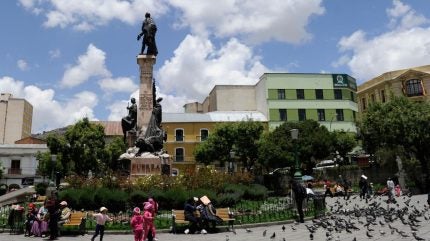

According to figures from the Banco Central de Bolivia, Bolivia continued on its negative foreign direct investment (FDI) trend through the first half of 2020 by posting a net deficit of $189m. The figure is the result of net FDI of $80.7m and $270.6m in disinvestment.
The banks says that this fall is equal to 1.4% of the country’s nominal GDP, compared with a fall equal to 0.6% in the previous quarter.
The UN Conference on Trade and Development’s (UNCTAD) World Investment Report 2020 expects landlocked developing countries (LLDCs) to suffer from a prolonged decline in both their GDPs and the GDPs of their most important trading partners as a result of the Covid-19 pandemic.
Bolivia’s FDI troubles began in 2018, when the country attracted less than half ($302m) of the foreign investment it had in 2017 ($702m). However, 2019 marked the nadir, when FDI stocks suffered a net loss of $160m.
The effect of Covid-19 on the global economy is likely to mean that the number of greenfield FDI projects in the country will shrink.
Covid-19 has dealt a particularly significant blow to Bolivia, however, given that even during a relatively poor year in 2019 it still attracted some of the largest projects across the LLDCs group. The largest among them was a $1.4bn investment from China’s TBE Group in the manufacturing sector, which created 3,000 jobs.
“FDI flows turned negative in Bolivia as investors held back new projects and repaid intracompany loans in a year of political turmoil and social unrest,” says UNCTAD.
Bolivia moves to become more FDI friendly
The Bolivian government is aware of the importance of FDI to the local economy and in 2014 passed a investment law to stipulate that each ministry will provide incentives for sector-specific investment; that the government can encourage investment in certain sectors that contribute to the economic and social development of the country; and that investments will be promoted in the exploration of hydrocarbons.
The government has also signalled its intention to create an investment promotion agency.
However, a key reason for the low level of foreign investment is the current government’s restrictions on foreign investors, which have included the nationalisation of foreign companies and threats to expel multinational companies.
On top of that, the instability of the legal framework, widespread corruption, weaknesses in the rule of law and a prohibition on resorting to international arbitration are elements that continue to affect the business environment.


